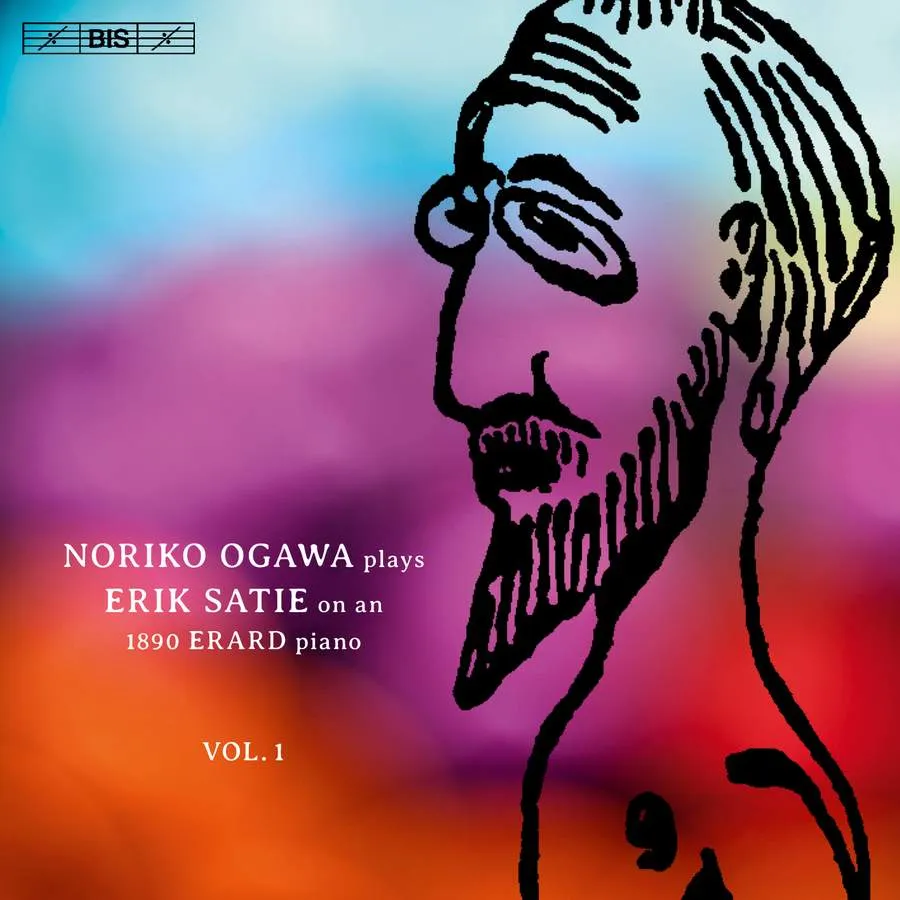
COMPOSERS: Erik Satie LABELS: BIS ALBUM TITLE: Satie WORKS: Noriko Ogawa plays Erik Satie on a 1890 Erard piano, Vol. 1: Trois Gymnopedies; Gnossiennes Nos 1-7; Le Piccadilly (Marche); Chapitres tournes en tous sens; Avant-dernières pensées; Croquis et agaceries d’un gros bonhomm en bois; Sonatine bureaucratique; Embyrons desséchés; Descriptions automatiques; Les trois valses distinguées du precieux dégouté; Je te veux (valse), etc PERFORMER: Noriko Ogawa (piano) CATALOGUE NO: BIS-2215 (hybrid CD/SACD)
We may not have recordings of Satie playing his own piano music, but we do have the next best thing: a disc of his pieces recorded in 1956 by Poulenc, who undoubtedly had heard the master perform some decades earlier. These are eloquent testimony to, among other things, Satie’s insistence on rhythmical performance, with no sloppy hesitations before ‘important’ notes. I am delighted to report that Noriko Ogawa follows this true tradition. In doing so, she convincingly destroys the (alas widespread) belief that Satie’s music actually needs pulling about for its sly humour and sudden moments of tenderness to make their mark. In this utterly delightful disc she manages to convey not only Satie’s quirkiness, but his honesty (Milhaud’s widow Madeleine, then in her nineties, told me that of all the people she had known in her long life, Satie was the most honest). Ogawa does use the sustaining pedal, but sparingly. She also, as we know, has a fine technique and the relentless gossip of ‘Celle qui parle trop’ is given the full speed ahead, persuading us that the poor husband might indeed, as Satie’s commentary informs us, ‘die of exhaustion’.
This disc also rewards repeated listening. Ogawa’s nuances are, rightly, subtle and one can easily miss them first, or even second time round. The choice of a clean, crisp 1890 Erard is excellent for this music, and it’s very good news that this disc is Volume 1 in a collection of all Satie’s solo piano music.
Roger Nichols